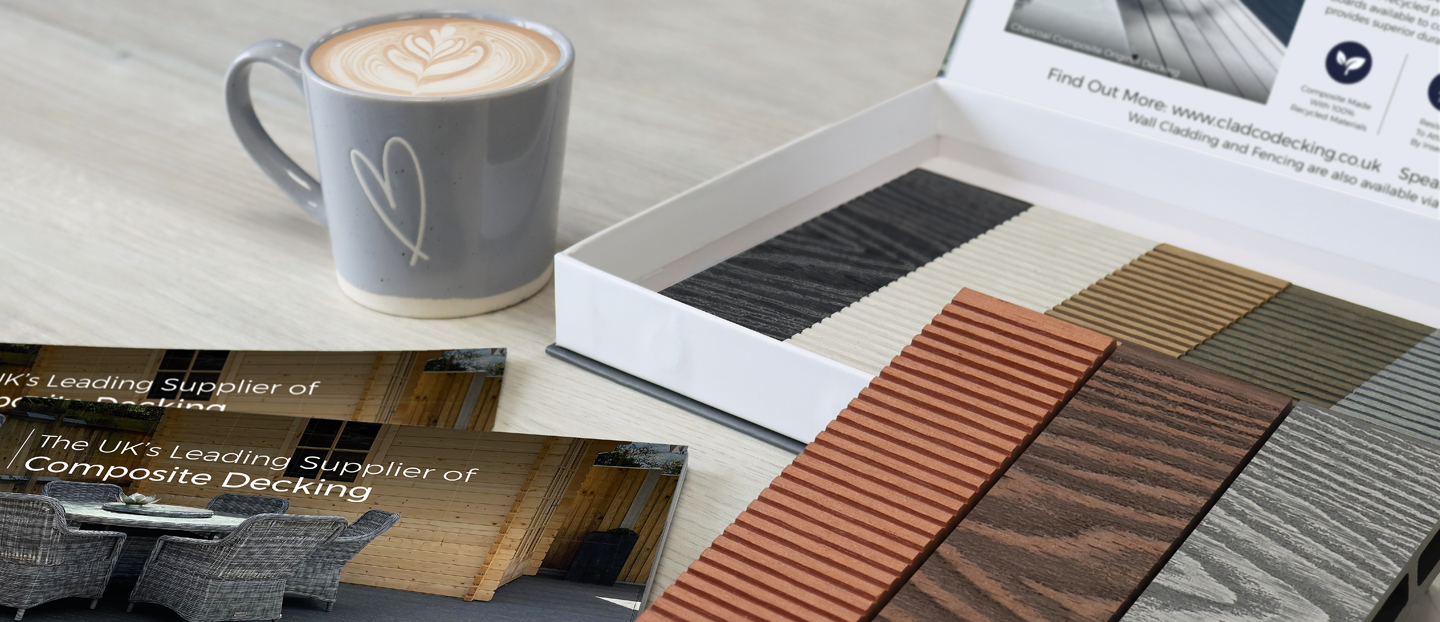If you’re reading this, you’re probably one of the many people across the UK each year trying to decide which type of decking will best suit your project.
For several decades, timber decking has been the go-to choice. But in recent years, modern alternatives have taken the lead, offering better durability, easier maintenance and greater value for money over time.
In this guide, we’ll explore the key differences between recycled plastic decking and wood-plastic composite decking, comparing their performance, appearance, cost and environmental impact. By the end, you should have a much clearer idea of which material is the best fit for your outside space, helping you plan your project with confidence.
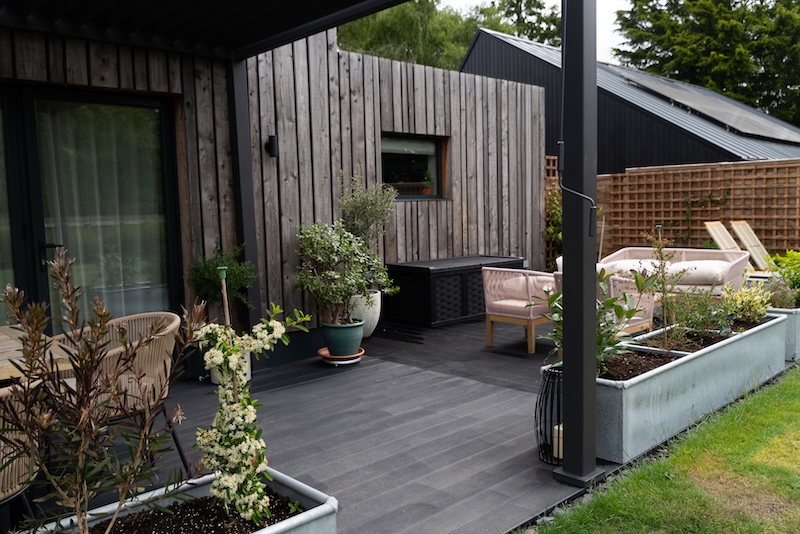

Article Contents
Quick Comparison
| Decking Type | Durability / Lifespan | Maintenance | Water Resistance | Heat Retention | Appearance | Cost (approx.) | Sustainability |
|---|---|---|---|---|---|---|---|
| Recycled Plastic Decking | Extremely long-lasting (25–50 years) | Virtually no maintenance required | Completely waterproof | Can get hot in direct sunlight | More synthetic, less natural look | Higher upfront cost | Made from 100% recycled materials and fully recyclable |
| Composite Decking | 15–25 years on average | Low maintenance – occasional cleaning | Highly water-resistant | Cooler underfoot in warm weather | Authentic natural timber grain look | Lower starting cost | Uses recycled materials, but not fully recyclable |
Scroll table to see more
What is recycled plastic decking?
Recycled plastic decking is one of the newest innovations in outdoor decking, combining impressive strength with long-lasting performance. Made entirely from 100% recycled plastics, primarily mixed post-consumer materials such as polypropylene (PP) and polyethylene (PE), it’s a durable alternative to timber that requires virtually no upkeep.
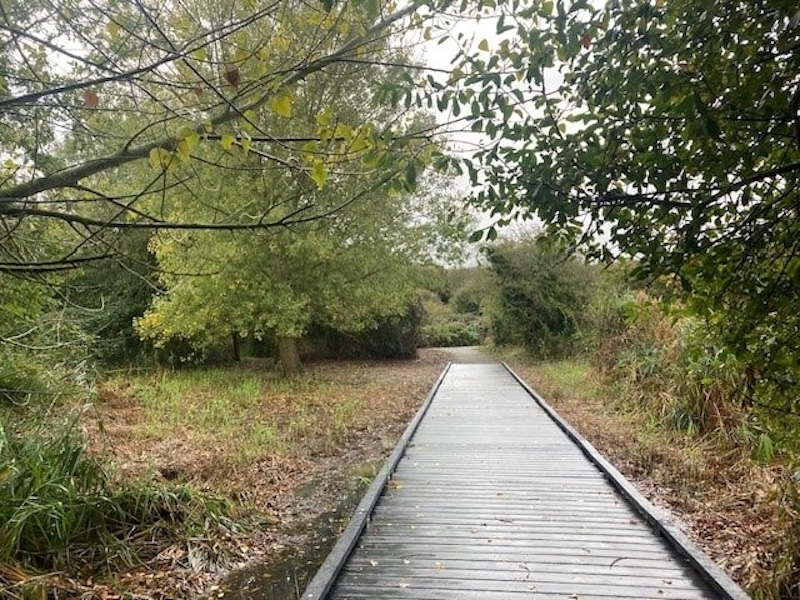

These decking boards are manufactured by processing complex mixed plastics, including bottles, food packaging and other everyday plastic waste that would otherwise end up in landfill. By turning these materials into useful, long-lasting products, such as decking boards and outdoor furniture, recycled plastic products help reduce waste while also lowering the demand for virgin timber.
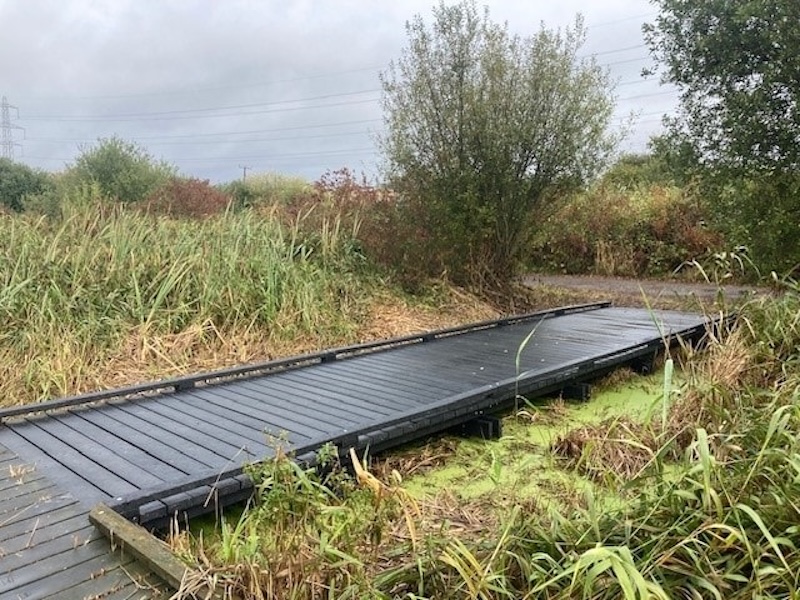

The result is a robust, weatherproof, and eco-friendly material that appeals to anyone looking for a sustainable, hassle-free decking solution without the maintenance burden of wood, like our own range of recycled plastic decking boards.
What is composite decking?
Composite decking refers to decking boards made from a mixture of recycled wood fibres and recycled plastics. The result is a durable, weather-resistant material that closely replicates the authentic look and feel of natural timber.
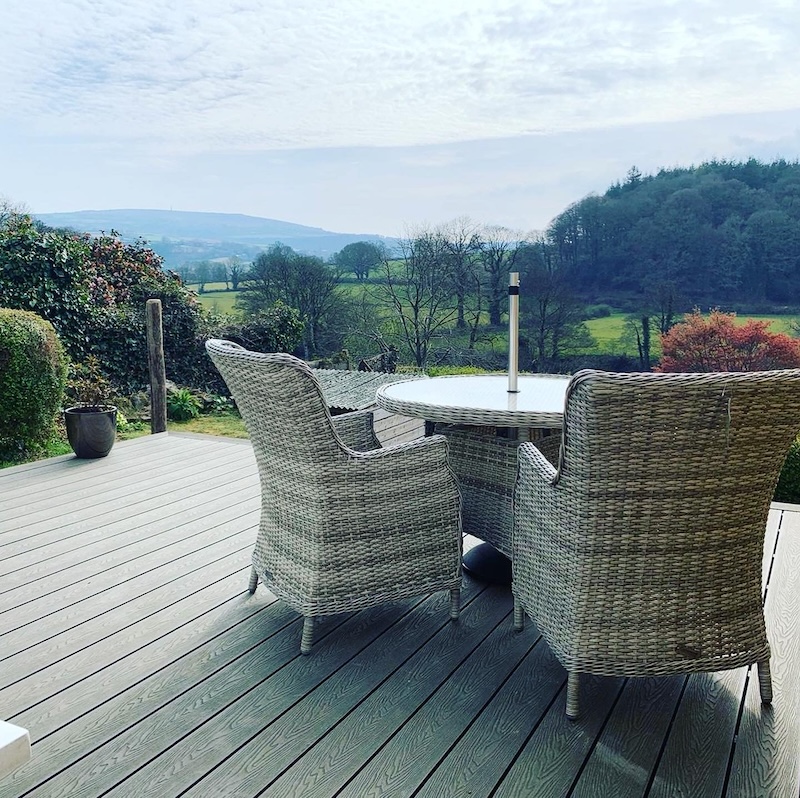

In terms of overall composition, composite decking boards are generally made up of 60–90% wood fibre, with recycled plastic forming most of the remainder. Bonding agents are added to bind the materials, creating a strong, low-maintenance decking board. Finally, colour pigments are introduced to produce a wide variety of colour finishes, from timeless, traditional shades to more on-trend, contemporary tones that add character and style to any outdoor space.
While composite decking is considered an environmentally friendly choice, it is not quite as sustainable as recycled plastic decking. Although both types of decking feature recycled materials, composite boards combine wood and plastic, which means they can’t currently be recycled in the same way. That said, their long lifespan and use of reclaimed wood fibres still make them a much more eco-friendly decking solution than traditional timber.
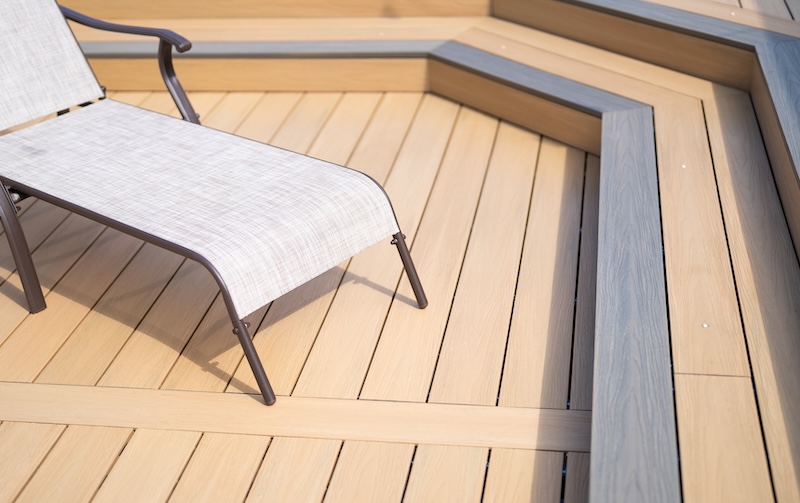

At Cladco, we offer a choice of composite decking options, including our Signature range and the popular polymer-capped ProDeck boards for those wanting enhanced protection and durability. Each board type is designed for long-lasting performance with a premium appearance. We also provide FSC® certified composite products at no additional cost. If you're interested, simply request FSC® certification when placing your order.
Advantages of recycled plastic decking vs composite decking
So now we know the differences between the two decking materials, what exactly are the advantages of opting for recycled plastic decking rather than composite decking
- Sustainability: As these boards are made from 100% recycled plastic, they give new life to post-consumer waste that would otherwise end up in landfill across the UK. They can also be recycled again at the end of their life, making them one of the most sustainable decking materials available today.
- Longevity: Recycled plastic decking can last for several decades, outlasting both composite and timber boards. It won’t rot, splinter or degrade, even in the harshest of weather and wet conditions, and it is also resistant to insect infestation, mould and UV.
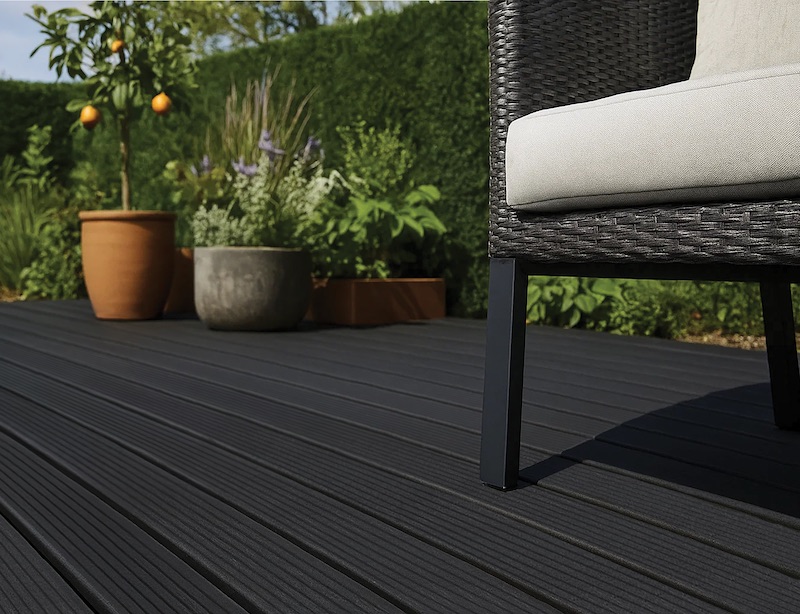

- Water Resistance: Unlike timber or composite decking boards, recycled plastic decking is completely waterproof. It doesn’t absorb moisture, meaning it won’t swell, warp or crack, even when used in areas exposed to standing water, frequent rainfall or even flooding.
- Zero Maintenance: As anyone who’s ever owned traditional wood decking will know, maintaining its appearance can be a constant battle. With recycled plastic, there’s no need for painting, staining or sealing. This makes it a popular choice for remote or public spaces, such as nature parks and public walkways, where ongoing maintenance would be difficult or impractical.
- Value Over Time: Although recycled plastic decking can have a higher upfront cost (more on that later), it offers long-term savings thanks to its zero-maintenance design and exceptional lifespan. Once installed, there are no ongoing treatment costs, making it a smart long-term investment.
Disadvantages of recycled plastic decking vs composite decking
Of course, like any material, recycled plastic decking isn’t perfect. There are a few things worth keeping in mind that might make composite decking a better fit for your project.
- Aesthetic Appearance: While recycled plastic decking has improved over the years, it still lacks the natural texture of real wood and the woodgrain effect found on most composite boards. The finish looks and feels more synthetic, which may not suit projects aiming for a high-end appearance.
- Colour Options: Recycled plastic decking is typically available in bold, uniform colours like grey, brown, beige or black. If you’re looking for a wider choice or subtler, more natural shades, composite decking may be the better fit.
- Heat Retention: Because of its dense construction, recycled plastic decking tends to retain more heat than timber or composite boards. When exposed to direct sunlight, the surface can become warm underfoot, particularly in darker colours, which some may find less comfortable.
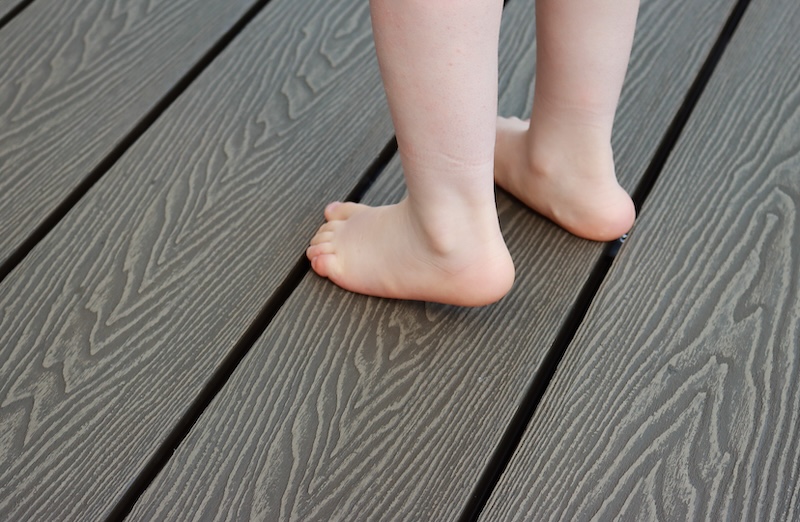

- Initial Cost: Recycled plastic decking usually has a higher upfront price than composite alternatives. While this balances out over time thanks to its durability and low maintenance, the initial investment can still be off-putting for some buyers.
- Weight and Handling: Plastic decking boards are generally heavier and more rigid than composite decking, which can make installation slightly more labour-intensive. Extra care is needed during fitting to ensure proper alignment and secure fixing.
Prices of recycled plastic decking vs composite
When comparing costs with composite decking, recycled plastic tends to sit toward the higher end of the price scale. The materials used, along with a more intensive manufacturing process, make it more expensive to produce than most composite boards.
At Cladco, composite decking prices start from around £38 per square metre for our Signature range, and approximately £49 per square metre for ProDeck, both excluding fixings and accessories. In comparison, our recycled plastic decking is priced from around £73 per square metre, again excluding fixings and accessories.
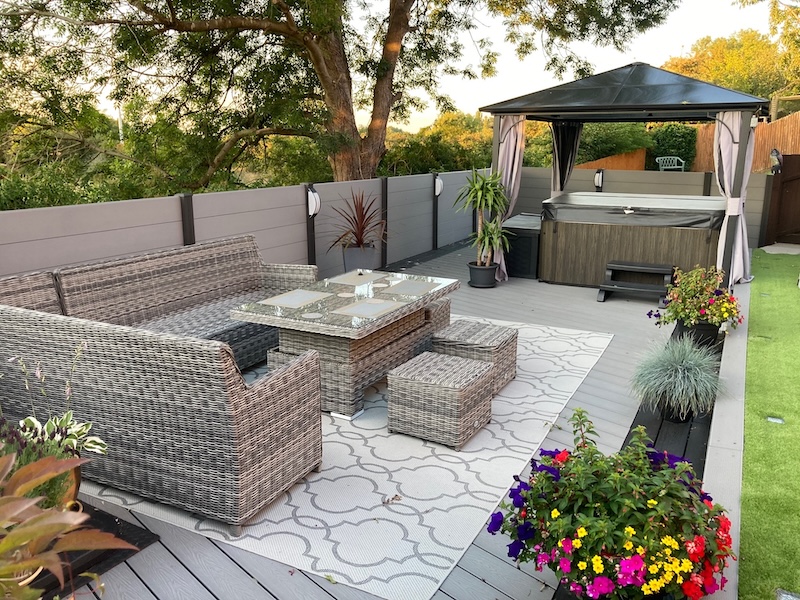

Although recycled plastic decking has a higher upfront cost, its long lifespan and zero-maintenance design can make it a far more cost-effective solution in the long run. With no need for treatments, costly repairs or replacements, it’s a smart investment for high-wear or remote environments where durability really matters.
Which is better - recycled plastic decking or composite decking?
Now that we’ve explored the advantages and disadvantages of recycled plastic decking when compared to composite, you’re probably returning to that original question: which type of decking is right for me?
Ultimately, the best option depends on your priorities and where the decking will be installed. Both recycled plastic and composite decking offer modern alternatives to natural wood, each with clear strengths.
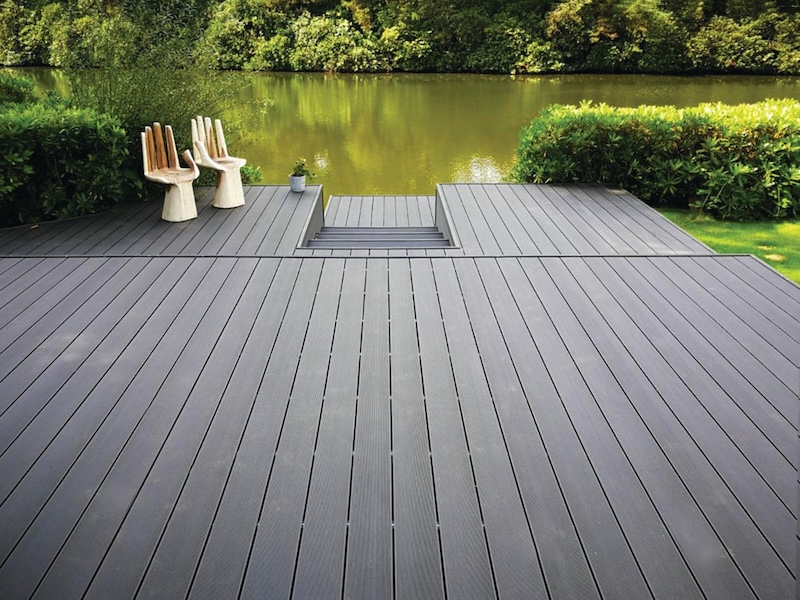

If you’re after a durable, zero-maintenance solution with strong green credentials, recycled plastic decking is hard to beat. It’s built to last for decades and can withstand constant exposure to moisture, heavy use and harsh weather. Because it won’t rot, swell or decay, it’s ideal for coastal areas, public spaces or remote environments where regular upkeep would be difficult.
Composite decking, on the other hand, is often the preferred choice for homeowners looking to refresh their gardens and outdoor living spaces. It comes in a much wider range of colours and has a more natural, timber-like look, making it easy to harmonise with both traditional and modern property styles.
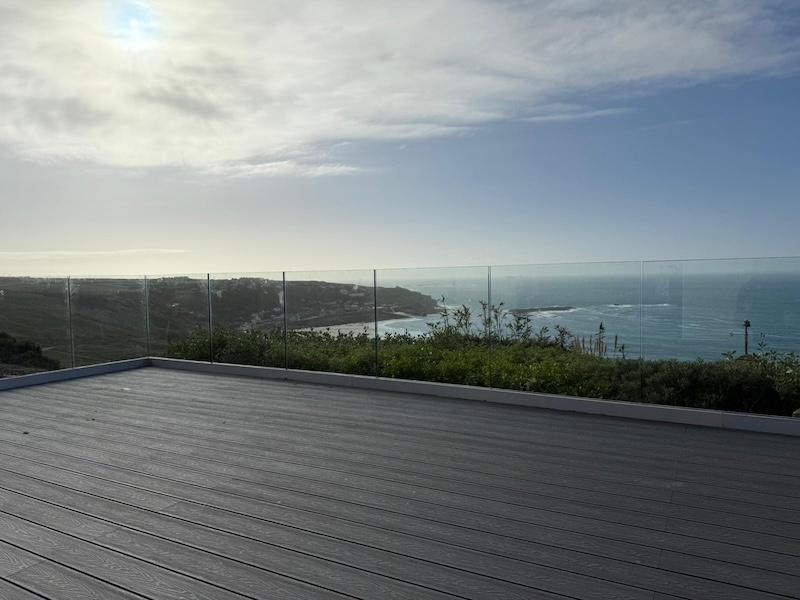

In short, if longevity, low maintenance and sustainability are your top priorities, recycled plastic decking could be the better investment. But if style, natural aesthetics and budget matter most, composite decking offers excellent performance at a lower upfront cost.
Whichever option you choose, both materials deliver lasting value, easy installation and a more sustainable alternative to traditional timber decking. If you’d like some further advice before making your choice, our friendly sales team is always happy to help. Give us a call today on 01837 659901 or email [email protected].
Last Updated: November 04, 2025
Please note all information is correct at the time of writing. However, we encourage you to do your own research to ensure it remains accurate and relevant to your needs.



